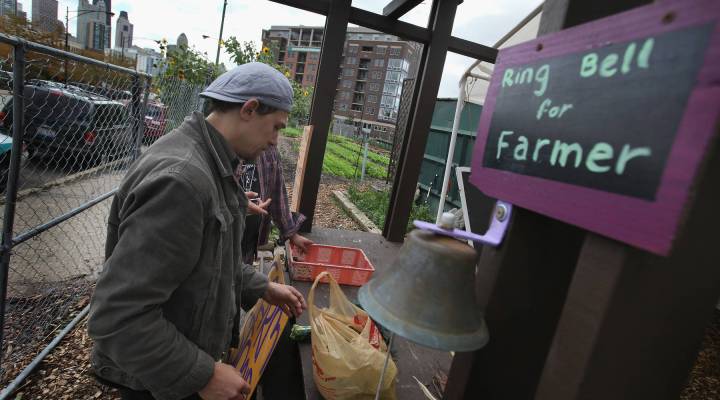
The argument against locavorism

A high percentage of the food on our grocery shelves contains genetically modified ingredients. If that fact scares you, you’re probably inclined to shop at your local farmers market. Going locavore — eating food that is locally produced — is a way to help support sustainable agriculture.
But it’s a movement that author Pierre Desrochers claims could have negative implications if taken too far. Pierre is co-author of “The Locavore’s Dilemma: In Praise of the 10-Thousand Mile Diet,” a book that explores why and how food became a globalized industry. It’s also critical of the choice to eat local at all costs.
Over the past few years, we’ve been hearing a lot about the need for us to be locavores, but Desrochers says there are several arguments against locavorism.
He uses the environmental dimension to illustrate his point — the less food travels, the less we will emit greenhouse gases in the process. Right? Desrochers says several studies have shown that while the food mile is a good indicator when everything else is equal, “in the real world not everything else is equal.”
In support of his argument against locavorism, Desrochers says that in the 19th century things began to really change when people stopped eating seasonally year-round — humans grew several inches as a species, life expectancy grew, and people didn’t die of many things related to malnutrition.
“The problem is that people tend to forget that famines and malnutrition historically were only really defeated for the masses when long-distance transportation came along,” he says. “People would regularly starve because when you depend entirely or mostly on your local food supply, you will not only have good years, but a fair number of bad years. And historically, two bad local harvests in a row and you had a famine. It was only long-distance transportation that put an end to that.”
Desrochers says he is not against good quality, appropriately-priced local food. But he is against local food that has no other positive attributes other than being local. Desrochers even goes to so far as to call locavorism a marketing fad. But why not have a moment in support of local farmers?
“The problem is… ultimately this will result in even more agriculture protectionism. This, we argue, is a really dangerous path to go down,” he says. “The extra bucks that you’re spending buying lesser quality local food unfortunately will not help the earth, will not help the local economy, and is part of a local movement that we think — carried to its logical conclusion — can be very dangerous.”
There’s a lot happening in the world. Through it all, Marketplace is here for you.
You rely on Marketplace to break down the world’s events and tell you how it affects you in a fact-based, approachable way. We rely on your financial support to keep making that possible.
Your donation today powers the independent journalism that you rely on. For just $5/month, you can help sustain Marketplace so we can keep reporting on the things that matter to you.












